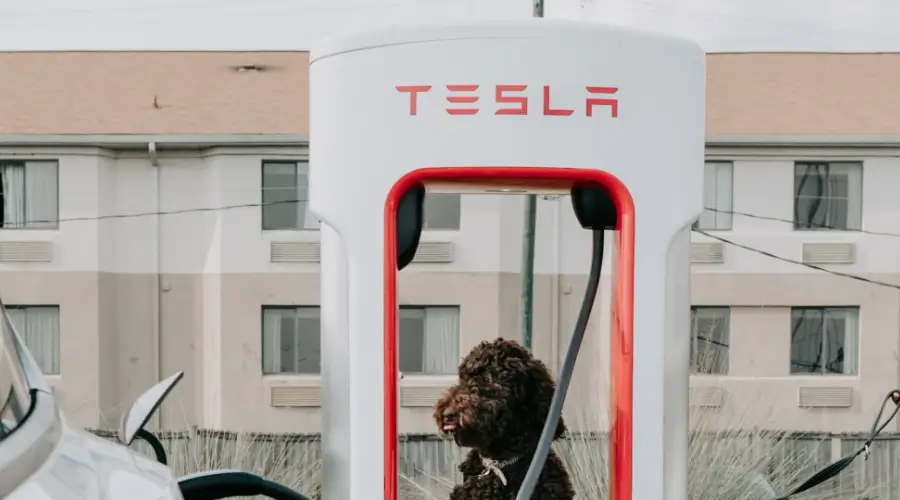Tesla, often seen as the trailblazer of electric vehicles (EVs), faced a surprising setback in March with a 12% drop in new registrations. Meanwhile, competitors like Ford, Hyundai, and Kia have been gaining momentum, capturing more of the EV market. This changing landscape indicates a shift in the competitive dynamics of the EV industry. Let’s explore this further, uncovering some less talked-about insights.

Tesla’s March Registrations Drop as Rivals Gain Ground (PDF)
The Numbers Behind the Shift
March saw Tesla’s registrations drop to 50,474—a 12% decline from last year. This downturn followed a 25% fall in February, suggesting a worrying trend for Tesla supporters. However, the overall EV market remained buoyant, bolstered by the strong performance of other manufacturers.
Tom Libby from S&P Global Mobility commented, “We anticipated new EV brands entering the market, and they’re proving to be strong competitors.” This observation highlights the market’s shifting dynamics. Tesla’s EV market share slipped to 52.4% from 61.5% the previous year, a sharp contrast to its commanding 80% share in 2020.
Competitors on the Rise
While Tesla’s numbers dipped, other automakers saw impressive gains. Here’s a breakdown of March EV registrations by brand:
- Ford: 8,418 (up 206%)
- Hyundai: 5,686 (doubled)
- Kia: 3,800 (up 95%)
- BMW: 4,246 (up 37%)
- Mercedes-Benz: 3,673 (up 29%)
These figures reveal a competitive landscape where Ford, Hyundai, and Kia are emerging as formidable players. Ford’s market share nearly tripled to 8.7%, while Hyundai’s almost doubled to 5.9%.
Unseen Bright Spots
Despite Tesla’s challenges, the overall EV market grew. Total EV registrations in March increased by 3.8%, reaching 96,385. Electric vehicles accounted for 7.1% of the U.S. light-vehicle market, up from 6.8% last year. This growth is noteworthy, considering the market’s previous 52% surge in 2023.
“If you exclude Tesla’s numbers, February and March were strong months for EVs,” Libby mentioned. Ford tripled its registrations in March, while Hyundai and Kia doubled theirs. BMW and Mercedes-Benz also saw double-digit growth.
The Model 3 Conundrum
A significant factor in Tesla’s recent struggles is the performance of its Model 3. Once a star performer, the Model 3’s registrations dropped by 61% in March, marking the fifth consecutive month of decline. This drop can be attributed to several issues:
- Model Refresh: The refreshed Model 3 launched in January, which temporarily disrupted production.
- Federal Incentives: The Model 3 lost access to the $7,500 federal EV incentive due to new battery sourcing rules.
- Supply Chain Issues: Tight supplies in the first quarter affected availability as production ramped up.
Despite these challenges, Tesla launched a Model 3 Performance variant in April that qualifies for the federal incentive, which might help boost future sales.
The Road Ahead for EVs
Looking forward, the EV market appears to be at a crossroads. Karl Brauer from iSeeCars remarked, “Our iSeeCars study from last year saw 7 percent as the point when EV market growth stalls. Now that we’ve reached that share nationally, I expect overall EV sales in the U.S. to stall or grow very slowly.”
Brauer suggests that while Tesla has a dedicated customer base, the growing competition will make it harder for Tesla to maintain its dominance. “There will be churn within the Tesla buyer base for a long time. New customers and sales growth? That’s getting tougher for Tesla every day,” he said.
Rising Stars in the EV Market
The competition is not only growing but also innovating. Here are some notable performances from March:
- Ford’s Mustang Mach-E: Registrations surged to 5,116.
- Ford’s F-150 Lightning: Bestselling EV pickup with 2,893 registrations.
- Hyundai’s Ioniq 5: Grew by 53% to 3,120.
- Hyundai’s Ioniq 6: Jumped from 153 to 1,857 registrations.
- BMW’s i5 Sedan: New entry with 823 registrations.
- Kia’s EV6 and EV9: Combined, significantly boosted Kia’s market share.
Wrapping Up
The EV market is clearly evolving, with Tesla facing increased competition from both established automakers and new entrants. While Tesla remains a dominant player, its market share is decreasing as rivals gain ground. This evolving landscape promises exciting developments in the coming years. Will Tesla reclaim its lead, or will competitors continue to close the gap?
What are your thoughts on the future of Tesla and the broader EV market?




